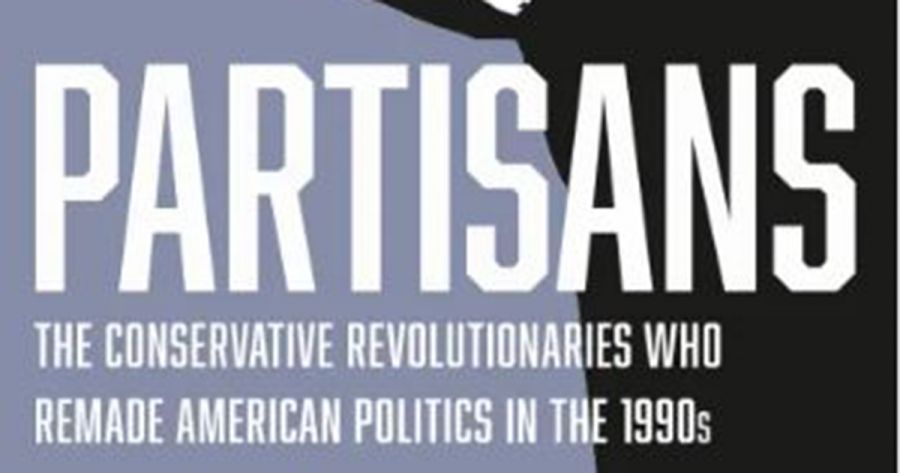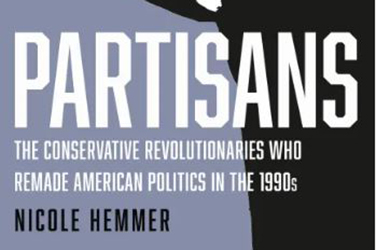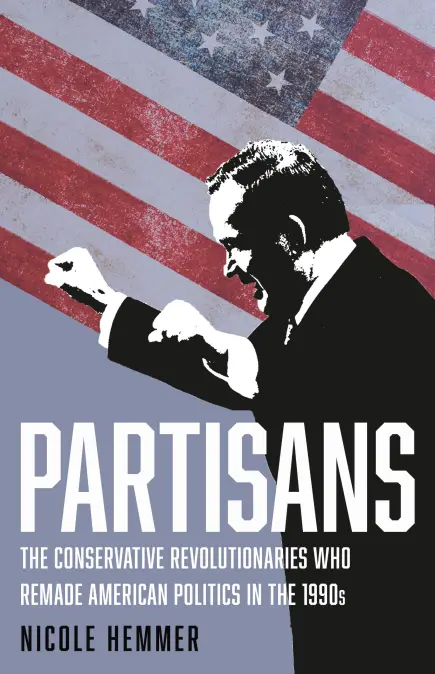
- Free Article: No
- Contents Category: Politics
- Review Article: Yes
- Article Title: Disorganised discontent
- Article Subtitle: A Trumpian fin de siècle
- Online Only: No
- Custom Highlight Text:
Beginning just as the Cold War finally came to an end, the 1990s were supposed to bring peace, prosperity, and optimism to the United States. Thinking about all that has happened since – the 9/11 attacks, interminable wars in Afghanistan and Iraq, the global financial crisis, violent unrest and democratic institutions under threat – it is tempting to look back on the decade as a short-lived golden age. But there has been a growing recognition among scholars and commentators that the roots of America’s contemporary woes can be found in the dark undercurrents of the fin de siècle. Strong economic growth and rapid technological advances had masked growing discontent and rage about inequality, immigration, and globalisation.
- Featured Image (400px * 250px):

- Alt Tag (Featured Image): Dominic Kelly reviews 'Partisans: The conservative revolutionaries who remade American politics in the 1990s' by Nicole Hemmer
- Book 1 Title: Partisans
- Book 1 Subtitle: The conservative revolutionaries who remade American politics in the 1990s
- Book 1 Biblio: Basic Books, $57.25 hb, 368 pp
- Book 1 Cover Small (400 x 600):

Although Hemmer declares from the beginning that Partisans is not a prehistory of Trumpism, the spectre of Trump haunts the book, with anecdotes scattered throughout that allude to the forty-fifth president’s chaotic reign. There is Pat Buchanan travelling to the southern border to talk about building a wall to keep immigrants out, and generally flirting with the far right; Ross Perot flaunting his wealth as a virtue by refusing large donations; Helen Chenoweth trolling environmentalists – ‘Earth First! We’ll log the other planets later’; and Bob Dole blaming voter fraud for his 1996 election loss. It’s all here – time is a flat circle.
Hemmer’s starting premise is that despite the fact that Reagan has endured for decades as the Republicans’ ‘conservative saint’, his version of right-wing politics began to splinter from the moment he left office in 1989. The Cold War had provided conservatives with moral, political, and organisational certainty – everything revolved around the opposition to communism. Once that was taken away, the contradictions of Republican doctrine – at its simplest, social conservatism combined with economic liberalism – revealed themselves more starkly. Even when Republicans held office, they faced belligerent criticism from media figures and their heartland base, who felt that they were insufficiently committed to core conservative principles.
What is striking about all of this rage, however, is its sheer disorganisation. ‘We organize discontent,’ veteran right-wing activist Howard Phillips liked to say. But by the 1990s, the right was far too fragmented and amorphous to allow any sense of strategic direction. Thus, Partisans tells several stories at once. We learn of far-right militias arming themselves against the threat of the federal government, as well as bookish intellectuals, funded by Washington think tanks, justifying their racism with pseudo-science. We witness smart conservative women gaining a foothold in the male-dominated mass media, as well as the right’s embrace of racism and conspiracy theories following Obama’s election victory in 2008. There is no organisational centre to this movement, but it has nevertheless had great success in pushing US politics further and further to the right.
As Hemmer notes, all of this radicalisation happened in plain sight, and often with the encouragement of the liberal media. One of the book’s many virtues is its reminder that several of cable television’s most egregious right-wingers – including Tucker Carlson, Laura Ingraham, Glenn Beck, and Ann Coulter – got their starts (or were promoted) in nominally liberal outlets such as MSNBC, The New York Times, CNN, and Comedy Central. It is a rather inconvenient truth for liberals who like to blame Rupert Murdoch’s Fox News for all that is wrong with American media and politics.
Of course, the malign influence of the Murdoch media is familiar to Australian readers. As I read Partisans in early November, Melbourne’s Herald Sun presented a perfect example of the way US-style conspiracies have infected our own politics, by publishing a front-page article hinting unsubtly at bizarre theories about Victorian Labor Premier Daniel Andrews’s fall on some slippery steps. This and countless other attacks did little to change voters’ minds about Andrews, who was re-elected with a strong majority later that month.
But this repudiation should not allow us to sleep soundly in the assumption that we can avoid the worst of America’s toxic politics. There are many other reminders in Partisans of the ways in which we have already adopted American practices. John Howard, in dog-whistling to racists and harping on about political correctness, was following in the footsteps of Reagan and the elder Bush. And Hemmer’s description of Republican tactics in Congress during the Clinton presidency – ‘a politics of destruction, concerned less with legislation than with investigation and obstruction’ – could easily be a description of the Coalition under the leadership of Tony Abbott and his chief of staff, Peta Credlin.
Following the disastrous failure of Abbott’s prime ministership, Credlin moved into the media via Australia’s version of Fox News, Sky News Australia. There – along with some of the most spiteful characters in Australian public life – she has found a welcome outlet for her vitriolic views, mimicking the style of Fox News’ gaggle of eternally furious pundits. Following recent electoral setbacks in the United States and Australia, the response of these commentators has been to demand that conservatives move further to the right. Wholly consumed by their own apocalyptic rhetoric, they are unwilling or unable to pull back and see that most people don’t share their passion for culture wars against the left.
Depressing as all of this may sound, Partisans is a lucid, insightful, and enjoyable read. It picks up where Rick Perlstein left off with his four enormous volumes on American conservative politics from Barry Goldwater to Reagan, but without the overwhelming, often superfluous, detail of those books. Though Hemmer’s sympathies with liberal politics are obvious, she maintains a careful neutrality throughout, allowing her subjects’ words and actions to speak for themselves. However, this neutrality has its own problems, in that sometimes the right-wing activists were right. Republicans may have overdone their pursuit of Bill Clinton, but it is clear that Democrats were too eager to believe their president rather than the women who accused him of sexual abuse. And he and the rest of the Democratic establishment have enriched themselves while ignoring the plight of working-class Americans. Hemmer and many other mainstream American liberals still struggle to acknowledge that disorganised discontent occasionally speaks the truth.


Comments powered by CComment